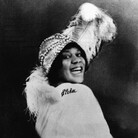Kman wrote:No he wouldnt [sic], it is Hamilton (Jeffersons [sic] political adversary) who was the one who wanted to murder people after they rebelled against the increasing taxes coming out of Washington (and libertarians typically dont [sic] like taxes).
Jefferson says nothing about taxes in the issue, that's just another libertarian lie they try to put in to history. Jefferson isn't even necessarily for the revolt, he explicitly frames it as a way to demonstrate that the British are lying by claiming the same kind of clap-trap you're ignorantly spreading:
Jefferson wrote:The British ministry have so long hired their gazetteers to repeat and model into every form lies about our being in anarchy, that the world has at length believed them, the English nation has believed them, the ministers themselves have come to believe them, & what is more wonderful, we have believed them ourselves. Yet where does this anarchy exist? Where did it ever exist, except in the single instance of Massachusetts? And can history produce an instance of rebellion so honourably conducted? I say nothing of it's motives. They were founded in ignorance, not wickedness.
Implicitly, he's here endorsing the violence of the French Revolution which is starting to take off. For Jefferson the French Revolution is the key to overthrowing the commercial and high capitalist order that the Federalists are attempting to foster with Britain. While Jefferson wouldn't be opposed to capitalism per se, he endorsed the Jacobins - who had stringent state control over commerce in order to feed the poor.
Kman wrote:Thomas DiLorenzo wrote...
TIG wrote:Having no factual basis for their [Libertarian] claims hasn't stopped them from spewing lies and propaganda with no evidence.
Kman wrote:So basicly [sic] he wanted to establish some sort of aristocracy of merchants since he considered the ''people'' to stupid to govern themselves.
Just as the libertarians do.
The context Jefferson was working in is considerably different than what you propose. Jefferson wanted an agricultural basis with stronger local governments. Ultimately, his ideal was the
Ward Republic, which is basically an agricultural soviet. The other tenant, which he expressly says needs to be included in such a scheme, is public education.
There are a few reasons and conclusions to be drawn from this. The first is that this started popping up early, but gained more traction after La Feyette was recognized as the leader of the National Guard and Bailly's authority in Paris was recognized by the king, the door opened and a lot of local authorities all over France started to pop up and gain traction. The idea was that this limited the power of the monarchy - which was a specter that republicans (small s) like Jefferson continued to fear.
Also, this was a stronger agricultural basis than a commercial (capitalistic) basis. The result strengthened Virginia and hurt big capital. From his writings, I think it's clear that Jefferson favored the former over the latter. Reagardless, this is why the Democratic Party that Jefferson started ended up getting Kentucky Fried during the Civil War - it favored agricultural land and interests over that of cities and modern capitalism. It's also why the Democratic Party as we know it today developed - in opposition to the same interests only this time on the side of the industrial workers.
The important thing to remember though, is that Jefferson opposed capitalism as we currently understand it. He favored a different kind of agricultural capitalism optimally, but he was a notorious cheerleader and supporter of the Jacobin's attempt to string up big capitalists and use the government for price controls and food distribution. Now this is something that can't be summed up neatly in one or two quotes (unfortunately) it's something that's readily apparent though. The link I used above is a direct enthusiastic cheer against the Feulliants (who wanted a steady capitalistic market) in favor of the Jacobins.
Kman wrote:That quote pretty much sums up libertarianism, so it is only natural that Libertarians like Thomas Jefferson.
TIG wrote:Really, this probably developed because he was an advocate of privacy - which the initial Libertarians supported. After the reLOVEution tard-fest the ignorant scum that makes up the reactionary Black Hundreds just dimly applied whatever financial position they felt like on Jefferson having never read his complete letters.
Kman wrote:Jefferson is sexier than Hamilton because Hamilton was a crook that wanted to grow the central government immensily [sic] and build an american [sic] empire (who americans [sic] would be required to pay for ofc), im [sic] not surprised that you as a commie like a man like Hamilton who wanted to grow the central government immensily. [sic]
1. Hamilton wanted a
commercial empire. He wanted the merchants and capitalists to be in exclusive control with as much power as possible - exactly as the libertarians do. Only he was working in a more unstable time and needed to shore up their control more.
2. Where in the world did you get the idea that I would be for a capitalist adventurer that wanted to limit political power to capitalists only and strengthen private enterprise in Europe?
Kman wrote:He understood that mistakes happened in revolutions but I somehow question your claim that he opposed capitalism IE private ownership of capital, I would like some proof to this claim.
I said that he "supported the French Revolution in its most extreme forms curbing capitalism" as he supported the Jacobins:
Wikipedia, giving information that everyone already knows in this case, wrote:The Jacobin Club developed into a bureau for French Republicanism and revolutionary purity, and abandoned its original laissez faire economic views in favor of interventionism. In power, they completed the abolition of feudalism that had been formally decided 4 August 1789, but had been held in check by a clause requiring compensation for the abrogation of the feudal privileges...The ultimate political vehicle for the Jacobin movement was the Reign of Terror overseen by the Committee of Public Safety, who were given executive powers to purify and unify the Republic. The Committee instituted requisitioning, rationing, and conscription to consolidate new citizen armies. They instituted the Terror as a means of destroying those they perceived as enemies within: "Terror", said Robespierre, "is only justice that is prompt, severe and inflexible".
Kman wrote:Feel free to provide this evidence.
That libertarians claim Jefferson despite all evidence to the contrary? How about your last post? But you're not alone - most people do. Socialists sometimes do because he was a revolutionary - and revolution is their game. So could the Ku Klux Klan as he had slavery. So could (and did) the abolitionists because he wrote against slavery.
The fact is that Jefferson belonged to a time centuries ago that doesn't really parallel our own political conceptions. You take what you like and ignore the rest. I do that too - everyone does - but I'm under no illusions that Jefferson some how exemplifies my political beliefs. I respect him as an intellectual and revolutionary - but I'm going to take to task anyone that distorts him and tries to use him as a beacon for the ignorant to fetishize in the name of an ideology he probably would have abhorred. I don't care if that's fascism, some form of socialism, or slavery. I'll especially do that when t comes to libertarianism though as they're such an empty ideology (of late) that they can't do anything except for try to do a slide in hand in falsely associating and changing history to suit their needs.

Alis Volat Propriis; Tiocfaidh ár lá; Proletarier Aller Länder, Vereinigt Euch!





















 - By wat0n
- By wat0n